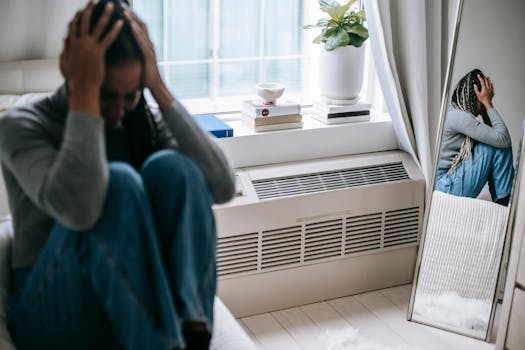
Benefits of Regular Exercise on Mental Health
Regular exercise is one of the most effective ways to improve mental health and wellbeing. Exercise has been shown to have a positive impact on mental health, reducing stress and anxiety, improving mood, and even alleviating symptoms of depression and anxiety disorders.
Reducing Stress and Anxiety
Exercise is a natural stress-reliever and can help reduce anxiety and stress levels. When we exercise, our body releases endorphins, also known as ‘feel-good’ hormones, which help to improve our mood and reduce stress and anxiety. Regular exercise can also help reduce symptoms of post-traumatic stress disorder (PTSD) and other anxiety disorders.
Improving Mood
Exercise has been shown to have a positive impact on mood, reducing symptoms of depression and anxiety. The release of endorphins during exercise can help improve our mood, reducing symptoms of depression and anxiety. Regular exercise can also help improve sleep quality, which is essential for maintaining good mental health.
Improving Cognitive Function
Exercise has been shown to improve cognitive function, including improved concentration, memory, and problem-solving skills. Regular exercise can also help reduce the risk of dementia and other neurodegenerative diseases.
Other Benefits of Exercise on Mental Health
In addition to reducing stress and anxiety, improving mood, and improving cognitive function, regular exercise can also have other benefits on mental health, including:
- Improved self-esteem and body confidence
- Reduced symptoms of attention deficit hyperactivity disorder (ADHD)
- Improved sleep quality
- Reduced risk of substance abuse
- Improved overall mental wellbeing
Conclusion
In conclusion, regular exercise is one of the most effective ways to improve mental health and wellbeing. With its numerous benefits, including reducing stress and anxiety, improving mood, and improving cognitive function, exercise is an essential component of maintaining good mental health. So, find an exercise routine that you enjoy, and make it a regular part of your lifestyle.
Tips for Incorporating Exercise into Your Lifestyle
Here are some tips for incorporating exercise into your lifestyle:
- Find an exercise routine that you enjoy, such as walking, running, swimming, or yoga
- Start small and gradually increase the intensity and duration of your workouts
- Exercise with a friend or family member for motivation and support
- Try to exercise outdoors, as nature can have a positive impact on mental health
- Make exercise a regular part of your routine, aiming for at least 30 minutes of moderate-intensity exercise per day
Common Excuses for Not Exercising
Here are some common excuses for not exercising, and how to overcome them:
- No time: Try to find ways to incorporate exercise into your daily routine, such as taking the stairs instead of the elevator or doing a few jumping jacks during commercial breaks while watching TV.
- No motivation: Find an exercise routine that you enjoy, and exercise with a friend or family member for motivation and support.
- No energy: Start small and gradually increase the intensity and duration of your workouts. Exercise can actually increase energy levels and reduce fatigue.
- No money: Find free or low-cost exercise options, such as walking or bodyweight exercises, or look for discounts or promotions at local gyms or fitness studios.
Conclusion
In conclusion, regular exercise is essential for maintaining good mental health and wellbeing. With its numerous benefits, including reducing stress and anxiety, improving mood, and improving cognitive function, exercise is an essential component of a healthy lifestyle. So, find an exercise routine that you enjoy, and make it a regular part of your lifestyle.
Final Thoughts
Regular exercise is one of the most effective ways to improve mental health and wellbeing. With its numerous benefits, including reducing stress and anxiety, improving mood, and improving cognitive function, exercise is an essential component of maintaining good mental health. So, find an exercise routine that you enjoy, and make it a regular part of your lifestyle. Remember, every small step counts, and even a few minutes of exercise per day can have a positive impact on mental health.
Additional Resources
Here are some additional resources for learning more about the benefits of exercise on mental health:
- National Institute of Mental Health (NIMH) – https://www.nimh.nih.gov/
- World Health Organization (WHO) – https://www.who.int/
- American Psychological Association (APA) – https://www.apa.org/





